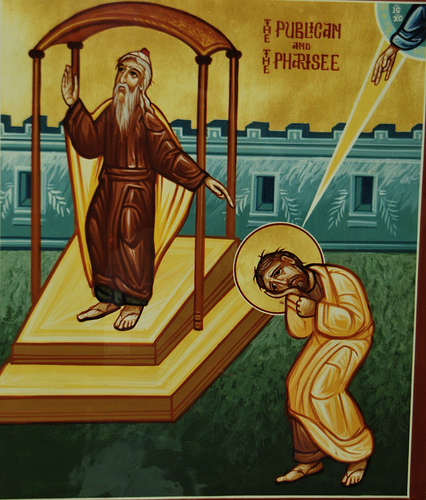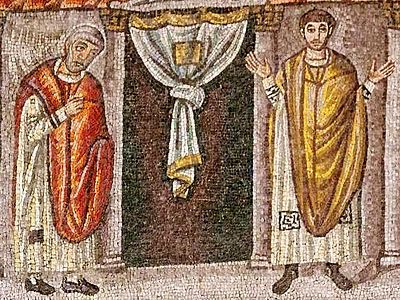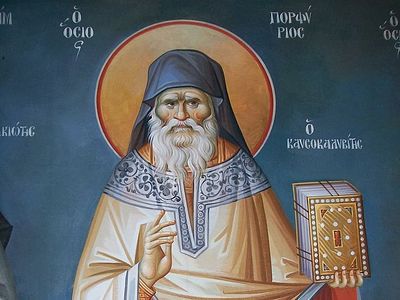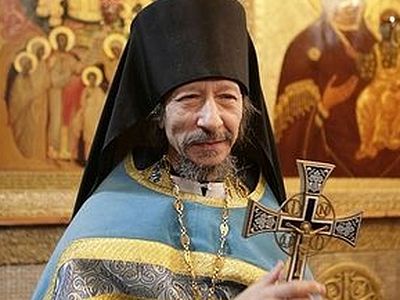Source: Again and Again
February 22, 2016

Today is the Sunday of the Publican and the Pharisee, named after the gospel reading we hear this Sunday, the story Jesus gave about a Publican who goes to the temple to pray and the publican who goes to the temple to pray. Last night, at Vespers, we opened a service book and began using it in our church services – the Lenten Triodion. It is only used during Lent so that we can say we’ve entered the fast – but we’re not fasting. Instead we are preparing ourselves for the Great Fast. And one of the first things the church tells us in our preparation for fasting is: don’t fast! Don’t fast on Wednesday of this week and don’t fast on Friday of this week that we might not become like the Pharisee in today’s gospel, thinking that it’s the fast that saves us; thinking that it’s prayer that saves us. Remember, our Lord says at one place in the gospels, “Not everyone who says to Me, ‘Lord, Lord’ will enter the kingdom of heaven.”
If we take a closer look at the Pharisee in today’s gospel we’ll notice that he was a good man. He fasted regularly. He went to the temple regularly. He tithed regularly. But when he prayed that’s all he talked about. And so he says to God in his prayer, “I thank you God that I’m not like other people, robbers, evildoers….or even this publican. I fast twice a week and give a tenth of all I get.”
Such a prayer is not pleasing to God who distances Himself from evildoers. Many of the holy fathers teach us that humility is the mother of all virtues. It opens the doors to our salvation. It was this virtues that adorned the heart of the publican and not the Pharisee even though he had many good deeds.
Holy Scripture, both the Old and New Testament, are filled with examples of the dangers of pride. This is the reason the Church decided to give us this morning’s gospel reading to begin our preparation for Great Lent, that we be given this lesson about humility.
We need to be sober-minded and always aware of our sins. As our holy St. Bishop Nikolai points out, God is more pleased when man numbers his sins and not his good deeds, because He is our Physician and comes to our bed and asks us our pains. Foolish is the man who conceals his pain speaks to the Physician of his good health and wise is the one who tells him of all his pains. St. John Chrysostom says that to sin is evil but to not speak about it is the greatest sin for we unless we speak about it we’ll find no cure.
This is precisely the goal and aim of Great Lent. Yes, we are to fast and abstain from certain foods, but that’s not the point – the point is to change and grow closer to God.
May the Lord strengthen us in our faith that we approach the coming Lenten season with a humble heart.



